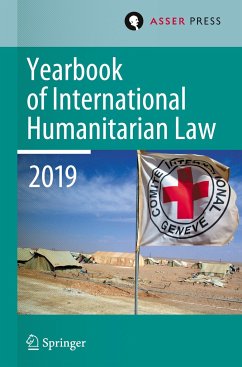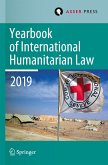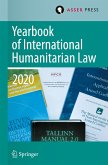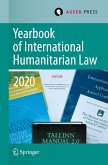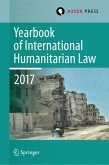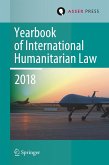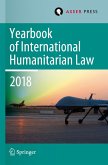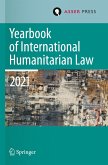The main theme of this volume of the Yearbook of International Humanitarian Law is the 70th anniversary of the Geneva Conventions. The evolution of these crucial treaties and international humanitarian law more generally comes back in six chapters addressing topics such as sieges, compliance, indiscriminate attacks and non-state armed groups.
The second part of the book contains a chapter on the acquittal on appeal of Jean-Pierre Bemba Gombo by the International Criminal Court on the basis of command responsibility for war crimes, as well as an extensive Year in Review describing the most important events and legal developments in the area of international humanitarian law that took place in 2019.
The Yearbook of International Humanitarian Law is the world's only annual publication devoted to the study of the laws governing armed conflict. It provides a truly international forum for high-quality, peer-reviewed academic articles focusing on this crucial branch ofinternational law. Distinguished by contemporary relevance, the Yearbook of International Humanitarian Law bridges the gap between theory and practice and serves as a useful reference tool for scholars, practitioners, military personnel, civil servants, diplomats, human rights workers and students.
The second part of the book contains a chapter on the acquittal on appeal of Jean-Pierre Bemba Gombo by the International Criminal Court on the basis of command responsibility for war crimes, as well as an extensive Year in Review describing the most important events and legal developments in the area of international humanitarian law that took place in 2019.
The Yearbook of International Humanitarian Law is the world's only annual publication devoted to the study of the laws governing armed conflict. It provides a truly international forum for high-quality, peer-reviewed academic articles focusing on this crucial branch ofinternational law. Distinguished by contemporary relevance, the Yearbook of International Humanitarian Law bridges the gap between theory and practice and serves as a useful reference tool for scholars, practitioners, military personnel, civil servants, diplomats, human rights workers and students.

